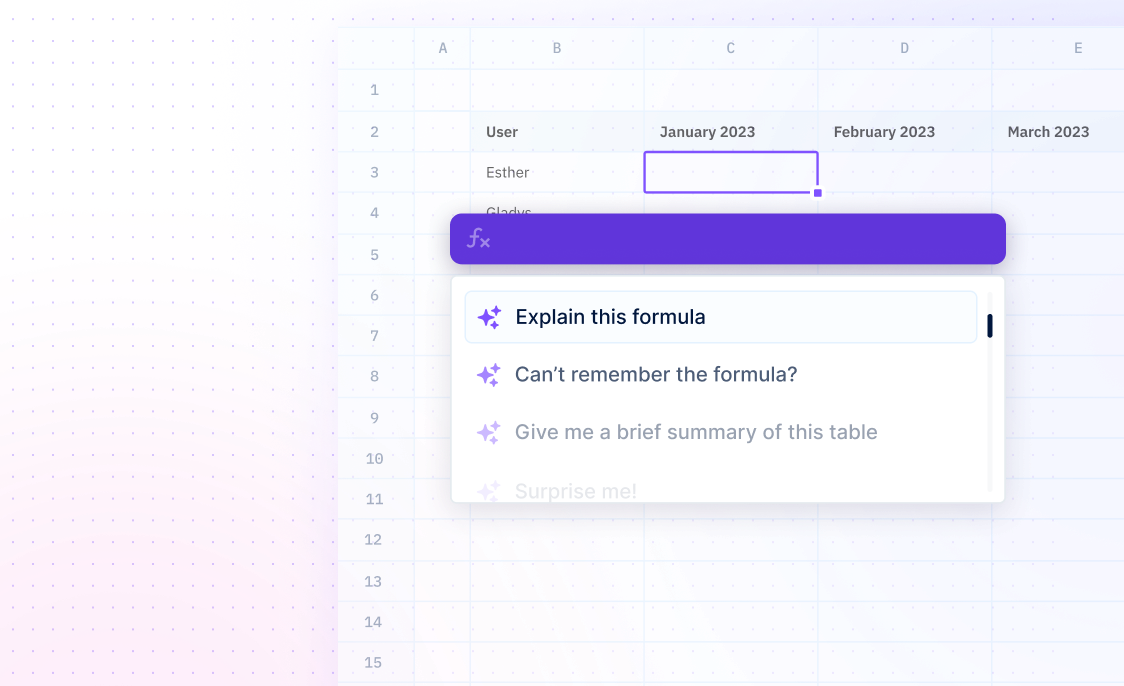
IMCSCH
Formulas / IMCSCHCalculate the hyperbolic cosecant of a complex number.
==IMCSCH(inumber)
- inumber - a complex number required
Examples
=IMCSCH("4+3i")The function in Sourcetable returns the inverse cosecant of a complex number, and would return 0.13815897. This means that the cosecant of 4+3i is 0.13815897.
=IMCSCH(5)The function can also be used to calculate the inverse cosecant of a real number, and would return 1.537475. This means that the cosecant of 5 is 1.537475.
=IMCSCH("-2i")The function can also be used to calculate the inverse cosecant of an imaginary number, and would return -1.5707963. This means that the cosecant of -2i is -1.5707963.
=IMCSCH("(1+2i)/(3-4i)")The function can also be used to calculate the inverse cosecant of a complex expression, and would return 0.11878894. This means that the cosecant of (1+2i)/(3-4i) is 0.11878894.
Summary
The IMCSCH function calculates the hyperbolic cosecant of a complex number, taking the complex number as its argument.
- The IMCSCH function returns the hyperbolic cosecant of a complex number, which needs to be formatted as x+yi or x+yj.
- The inumber argument is required for the function to work, and it must be a complex number.
- The function will return a #VALUE! error if the inumber argument is a logical value.
Frequently Asked Questions
What is the IMCSCH function?
What type of argument does the IMCSCH function take?
What is the proper format for the complex number argument?
- x+yi
- x+yj


